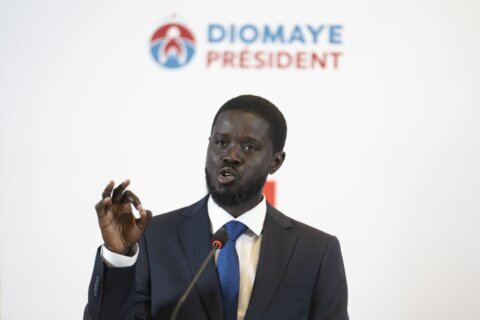Saturday marked two years since Central African Republic’s government signed a peace deal with rebel groups in an attempt to end years of fighting, but the country faces growing violence that threatens to null the agreement.
“Instead of celebrating the dividends of peace, we are celebrating the second anniversary in a context of war,” President Faustin-Archange Touadera said. Despite the violence, he said the agreement was not void and urged parties to stay faithful to it, while assuring civilians that the army is doing what it can to reclaim rebel-held areas.
The renewed violence occurred after the constitutional court rejected former president Francois Bozize’s candidacy for December’s presidential election. A coalition of the six strongest militias backing Bozize seeks to overturn the election results. Touadera won a second term with 53% of the vote.
Last month rebels attacked the outskirts of the capital, Bangui, killing at least two United Nations peacekeepers. It was the most serious threat to the capital since 2013, when the predominantly Muslim Seleka rebels seized power.
While the country had a few years of relative calm, intermittent fighting has continued since the peace deal with 14 rebel groups was signed. Eight still adhere to the agreement.
The U.N. has called on authorities to hold meaningful and inclusive talks with the political opposition and armed groups that have renounced the violence.
The mineral-rich nation faces an increasingly dire humanitarian crisis, with some 200,000 people fleeing their homes in less than two months, according to the U.N.
Rebels have cut off access between the capital and the Cameroonian border, where more than 1,600 trucks have been blocked since mid-December, causing food prices to spike.
“If the government fails to open the corridor in the coming weeks, the economic and humanitarian situations in the capital and the rest of the country will be more precarious, probably forcing the government to engage talks with the rebels, something it has ruled out for now,” Hans de Marie Heungoup, an expert with the International Crisis Group, told The Associated Press.
But civilians’ patience is running thin. Some say if the rebels don’t abide by the peace agreement, they should face consequences.
“If the government respects this agreement and armed groups don’t, sanctions need to be applied,” said Herve Lidamon, president of the Association for Victims of Crisis in Central African Republic. “We want to live in peace.”
Copyright © 2024 The Associated Press. All rights reserved. This material may not be published, broadcast, written or redistributed.







